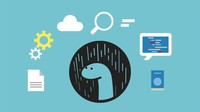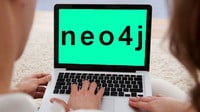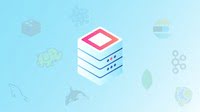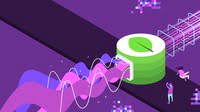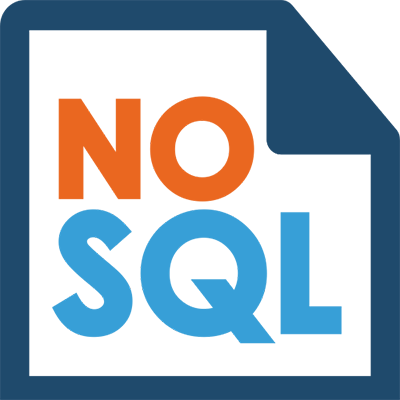
In this article you can find online courses to become a NoSQL expert.
A NoSQL database provides a mechanism for storage and retrieval of data that is modeled in means other than the tabular relations used in relational databases. Such databases have existed since the late 1960s, but the name “NoSQL” was only coined in the early 21st century, triggered by the needs of Web 2.0 companies. NoSQL databases are increasingly used in big data and real-time web applications. NoSQL systems are also sometimes called “Not only SQL” to emphasize that they may support SQL-like query languages or sit alongside SQL databases in polyglot-persistent architectures.
Many NoSQL stores compromise consistency (in the sense of the CAP theorem) in favor of availability, partition tolerance, and speed. Barriers to the greater adoption of NoSQL stores include the use of low-level query languages (instead of SQL, for instance), lack of ability to perform ad hoc joins across tables, lack of standardized interfaces, and huge previous investments in existing relational databases. Most NoSQL stores lack true ACID transactions, although a few databases have made them central to their designs.
Build your observability and security with our NoSQL industry experts to help you retain new skills.
Deno – The Practical Guide (MVC, SQL, NoSQL, REST API)
Donald Latumahina via Udemy
Welcome to Deno – The Practical Guide! Deno (or Deno.js, as some people call it) is a new technology for backend development released in 2020. It’s created by Ryan Dahl – the original developer of Node.js – after his 2018 talk 10 Things I Regret About Node.js . Deno takes a modern approach to web development that may become the trend for years to come. In this course, you will learn the ins and outs of Deno. You will learn about the different parts of Deno ecosystem and how they fit together. This course takes a gradual approach where you will learn Deno from its basic building blocks up to a full web application. Along the way, you will get a solid understanding of how Deno works and how to best use it to build web applications.
★★★★★(5-star rating)
NoSQL: Neo4j and Cypher (Part: 1-Beginners)
Bruce E. Hilton via Udemy
With Neo4j you have the tool which allows you to answers these questions, which are really just a graph query. So, Stop Developing Databases the Hard Way!! I wanted to make querying graph data not only fun, but easy to learn, understand and use with this easy to follow hands on course for developers and in under 3 hours! Neo4js’ Cypher language and property graph model is easy to understand and handle, especially for object oriented and relational developers. You can learn how to develop Neo4j databases the fast and easy way with this course. By the end of this part of the course, you will have a firm understanding of.
★★★★(4-star rating)
SQL, NoSQL, Big Data and Hadoop
Michael Enudi via Udemy
This course covers almost all classes of databases or data storage platform there are and when to consider using them. It is a great journey through databases that will be great for software developers, big data engineers, data analysts as well as decision makers. It is not an in–depth look into each of the databases but promises to get you up and running with your first project for each class. In this course, we are going to cover: Relational Database Systems, their features, use cases and limitations, Why NoSQL?,CAP Theorem, Key–Value store and their use cases, Document–oriented databases and their use cases, Wide–columnar store and their use cases and much more.
★★★★(4-star rating)
Learn MongoDB : Leading NoSQL Database from scratch
Sunil Kumar Gupta via Udemy
This course will help you to master one of the most popular NoSQL databases MongoDB. This course is designed to provide knowledge and hands on skills to become a successful MongoDB expert. We will start with basics of MongoDB and then we go on learning advance concepts to build MongoDB based applications. In this course, we will start by learning basic concepts of MongoDB, MongoDB installation process on different operating systems, creating databases, Collections, CRUD opertaions and Indexing. You can use the exercise files attached along this course to practice and follow along the each section/chapter. There will be short quizzes after each section to test our understanding and also to revise the concepts.
★★★★(4-star rating)
NoSQL: Neo4j and Cypher (Part: 2-Intermediate)
Bruce E. Hilton via Udemy
With Neo4j you have the tool which allows you to answers these questions, which are really just a graph query. I wanted to make querying graph data not only fun, but easy to learn, understand and use with this easy to follow hands on course for developers and in under 3 hours! Neo4js’ Cypher language and property graph model is easy to understand and handle, especially for object oriented and relational developers. You can learn how to develop Neo4j databases the fast and easy way with this course: By the end of this part of the course, you will have a firm understanding of.
★★★★(4-star rating)
Introduction to MongoDB for Data Analytics
Brian Dowe via Udemy
In this course, we’ll begin by covering the basics of MongoDB and the key differences between NoSQL and SQL to help you build an intuitive understanding of foundational concepts for the course. This will be followed by engaging practical exercises to help you understand how to use database operations in the Mongo Shell. You’ll then move on to designing your own database to store data for a blogging website, exploring how different data structures can be best–suited to solve different problems depending on the use case. Finally, we’ll move on to data analysis. You’ll use filtering, projection, sorting, and querying complex data structures to extract actionable insights from real world datasets. You’ll build these skills through a blogging website case study and then apply them on an E–Commerce data analysis challenge.
★★★★(4-star rating)

